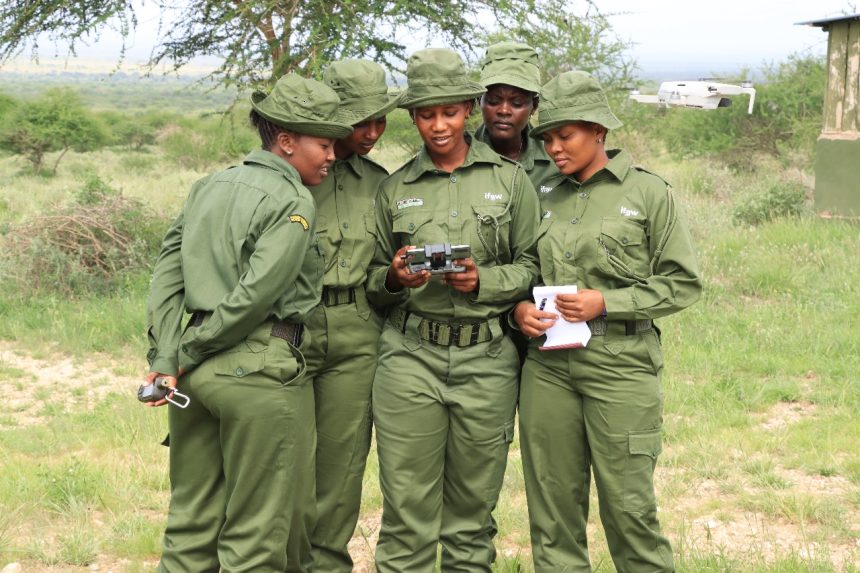The first rays of sunlight pierce through the Olgulului community lands bordering Amboseli National Park, casting a golden glow over the rugged terrain.
For Loise Soila, the day is already in motion. At just 24 years old, she has perfected the art of balancing two demanding roles: a mother of two and a wildlife ranger.
By 4 am, Soila is awake, tending to her five-month-old baby while preparing her household for the day ahead.
“By 6 am, I have to be in uniform and ready to roll out with my team. This means waking up hours earlier to ensure everything is in place for my baby,” she says with a determined glint in her eyes.
In her modest cubicle, where every inch of space is precious, Soila juggles the responsibilities of motherhood and ranger duties with remarkable grace. It’s a delicate balance, a mother driven by love and a ranger propelled by purpose.
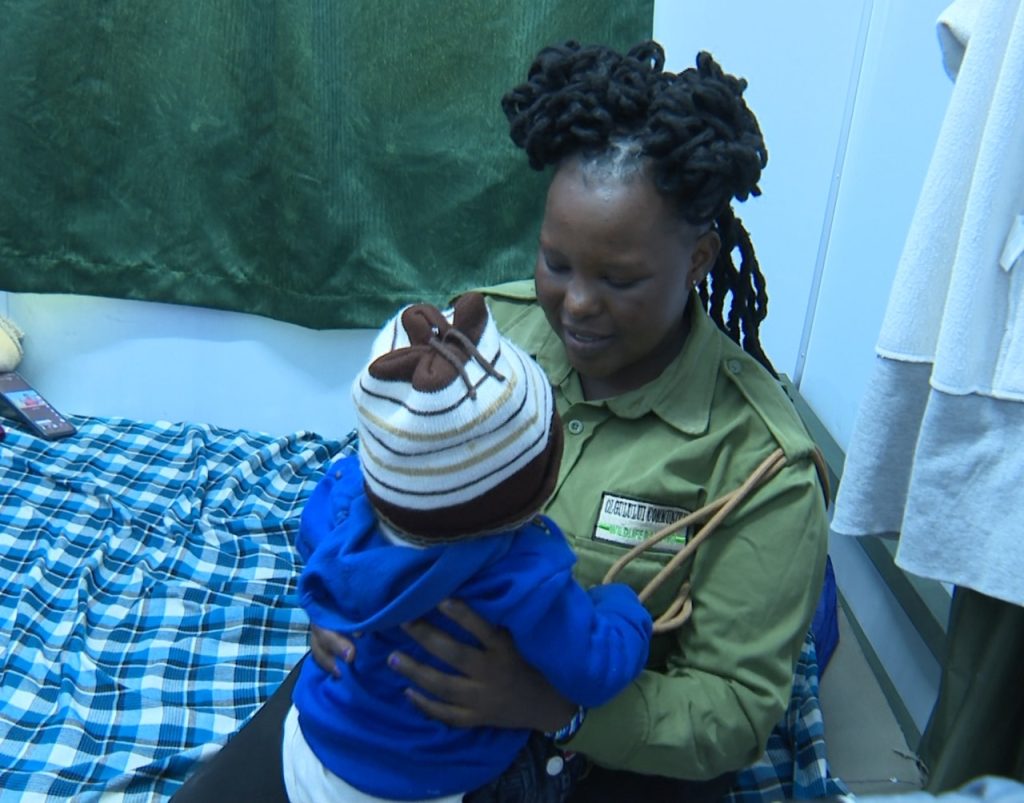
Her journey began at the age of 19, inspired by a village role model and namesake who shattered barriers by advocating for wildlife conservation.
“Soila carried herself with so much pride, defending our community from threats like poachers and wild animals. When my parents introduced me to her, I knew I wanted to follow in her footsteps,” Soila recalls with admiration.
Traditionally, Maasai culture dictated that only men became rangers, as women were considered too fearful of wildlife. But Soila broke the mould, proving that courage transcends gender.
At the ranger camp, Soila draws strength from her team’s unwavering support.
“The other rangers have become like family. They help me with everything, from holding my baby to doing laundry. I’ve never felt alone,” she says, a smile lighting up her face.
Despite the dangers of her job, Soila remains resolute.
“When I step into the wilderness, I set aside thoughts of my family. My mind has to be sharp, it’s the difference between life and death,” she says.
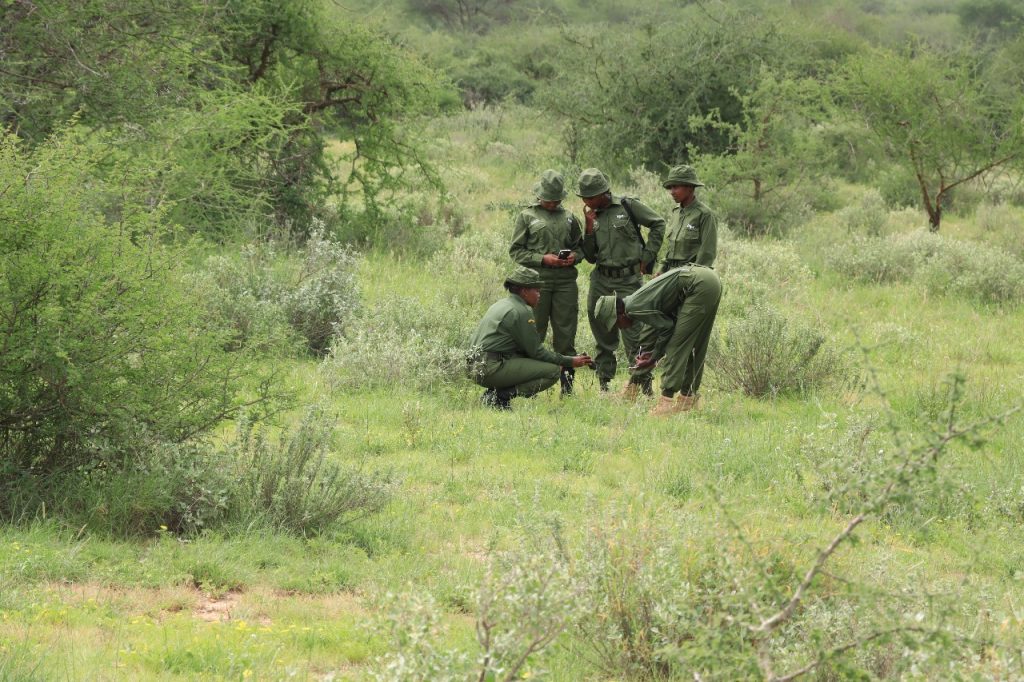
She vividly recounts a harrowing encounter with a buffalo that once ambushed her in the bush. Quick thinking and rigorous training saved her life as she dived into a nearby warthog hole, narrowly escaping the charging animal.
“Moments like that remind me why training and focus are so important,” she adds.
Soila earns Ksh 20,000 monthly for her dedication, a modest sum, but one she embraces with pride, knowing her work contributes to a greater cause.
She isn’t alone in her mission. Fellow ranger Sharon Nankinyi highlights the unique value female rangers bring to conservation.
“Women offer insider knowledge and a unique perspective to male ranger units. We connect with the community in ways men often can’t,” Nankinyi explains.
For instance, women frequently gather intelligence about poaching activities during communal tasks like fetching water, firewood or cooking.
Nankinyi, the youngest of ten siblings, followed her older siblings into the ranger profession.
“I admired their work and wanted to contribute to protecting our community,” she says.
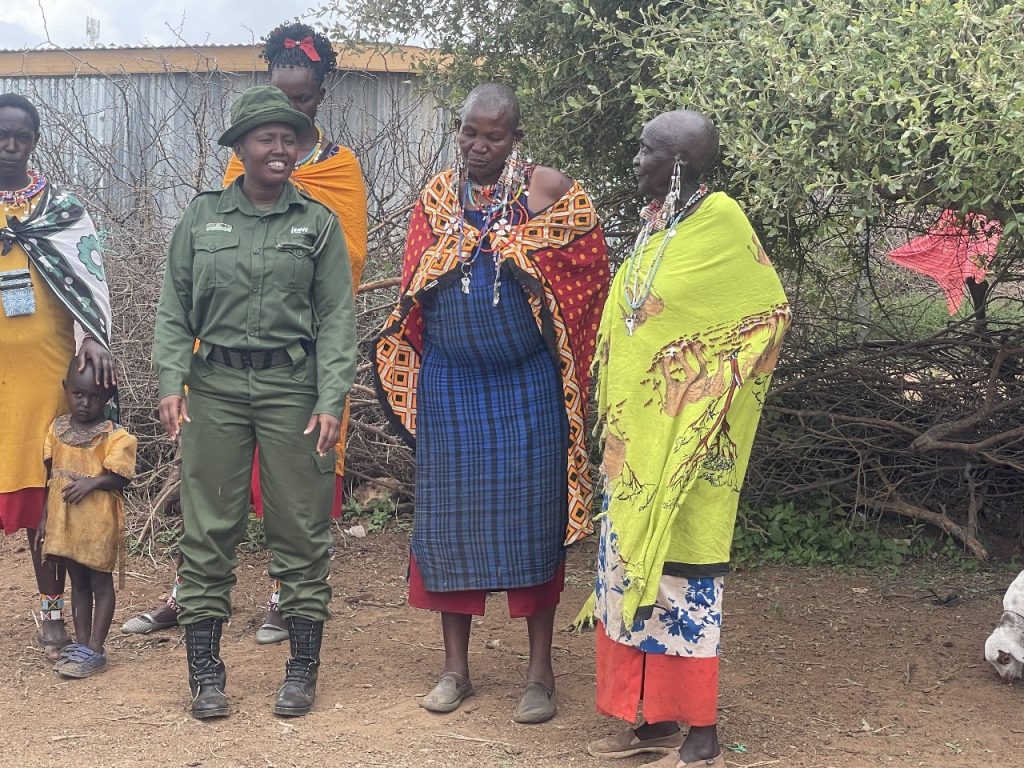
Their contributions extend beyond wildlife protection. Nankinyi’s mother, 75-year-old Naswaku Parsitau, proudly shares the impact her three ranger daughters have made.
“My daughters work in such a challenging field, but they’ve uplifted our family. They’ve educated their siblings and improved our homestead,” she says, adorned in vibrant Maasai attire.
Beyond family, the rangers give back to their community through school programs that teach conservation.
“It’s their way of honouring the community that raised and educated them,” Parsitau adds.
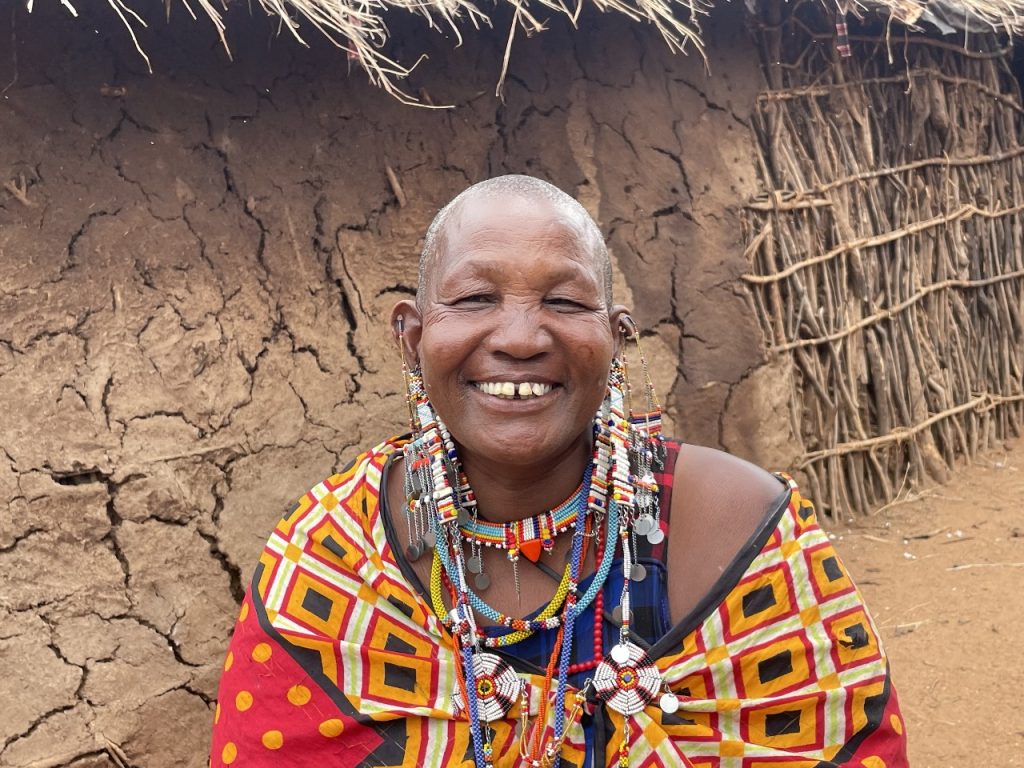
Established in 2019 under the Olgulului Community Wildlife Rangers and the tenBoma wildlife security initiative, Team Lioness comprises women selected for their leadership, academic excellence, and integrity.
Among them is 23-year-old Leah Murera, a tech-savvy ranger trained to use drones for wildlife monitoring.
With a cheeky smile, Murera reveals how she discovered that the buzzing sound of drones could scare away wild animals from homesteads by mimicking the buzz of bees.
“During the recent drought, over 40 elephants invaded community land in search of water. Using the drone from two kilometres away, I safely shepherded them out. Fortunately, there were no injuries reported,” she says with pride.
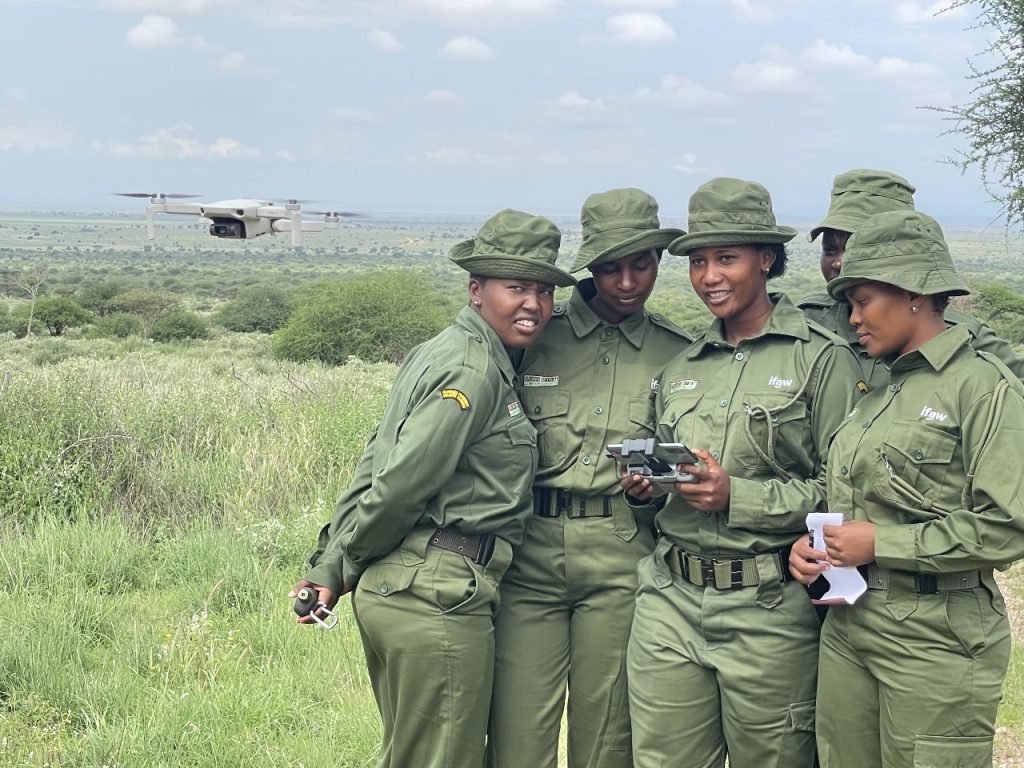
Murera highlights additional uses of drone technology, such as identifying watering holes, locating injured animals and monitoring new wildlife births.
She is also passionate about giving back, particularly to orphans in the community.
“As an all-female ranger group, we’ve embraced the responsibility of educating orphans, giving conservation talks in schools and holding workshops to teach community members about our role,” Murera says.
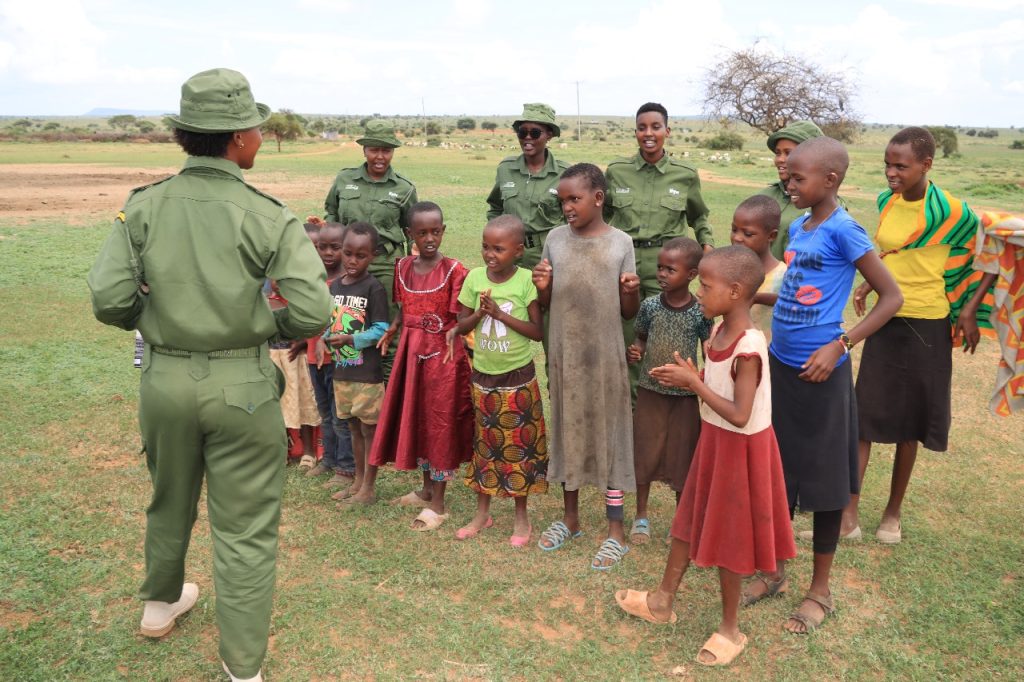
This has, in turn, encouraged community members to recognize the value of conservation, while instilling this knowledge in children from a young age, enabling them to grow up as defenders of their land.
Operating along wildlife corridors around Amboseli National Park, Team Lioness serves as the first line of defence against poaching and human-wildlife conflict. Their efforts protect iconic species like elephants, lions, giraffes, and cheetahs.
By challenging traditional norms, Team Lioness is not only safeguarding Kenya’s wildlife but also inspiring a new generation of women to embrace conservation.

